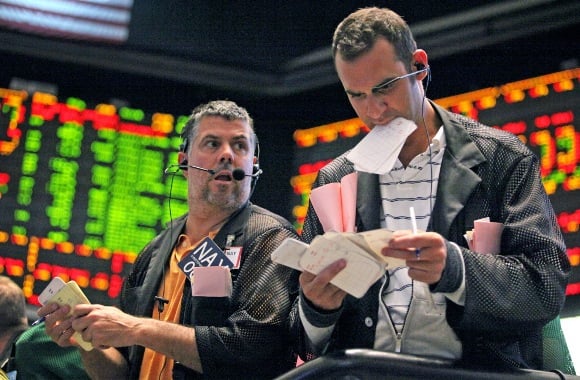If you picked Wednesday morning as the time to trade a utilities or gold-mining exchange-traded fund, you have rotten luck.
If you picked Wednesday morning as the time to trade a utilities or gold-mining exchange-traded fund, you have rotten luck.
Shares of popular utilities and gold-mining ETFs spiked in morning trading, thanks to “technical glitches” at market maker Knight Capital Group Inc. Ticker:(KCG).
The $6.6 billion Utilities Select SPDR ETF Ticker:(XLU), $1.2 billion Vanguard Utilities ETF Ticker:(VPU) and $740 million iShares Dow Jones U.S. Utilities ETF Ticker:(IDU) all saw dramatic spikes upward between 9:57 a.m. and 10:04 a.m., while the $8 billion Market Vectors Gold Miners ETF Ticker:(GDX) and $253 million Direxion Daily Gold Miners Bull 3X Shares ETF Ticker:(NUGT) both saw sharp drops due to extreme volatility in the products' underlying holdings.
Algorithmic computer traders, which are designed to take advantage of mispriced securities, jumped at the dislocated prices. More than 6 million shares of the Vanguard Utilities ETF were traded by midday, more than 70 times the average daily volume of 85,000, according to Morningstar Inc.
“Anyone that was trying to buy while the price was running up ended up paying substantially higher prices,” said Scott Freeze, president of Street One Financial.
The New York Stock Exchange said that it was reviewing more than 130 trades that took place this morning. The Securities and Exchange Commission also is reportedly looking into the trading behavior.
“The really bad part is that these aren't erroneous trades, they really happened,” Mr. Freeze said. “There's nothing the regulators can do to bust them.”
Shares of Knight Capital were down 22% by midday.
“An initial review by Knight indicates that a technology issue occurred in the company's market-making unit related to the routing of shares of approximately 150 stocks to the NYSE,” Knight Capital spokeswoman Kara Fitzsimmons wrote in an e-mail. “The company's OTC securities and trading in its other businesses are not affected.”
Lee Munson, a principal at Portfolio LLC, said that even if the trades actually happened, the fact that the situation was likely caused by computers rather than humans should be enough for the NYSE to disallow the trades.
“This is why God invented the idea of busting trades,” he said. “Black boxes should be allowed to feast on the fear and greed in the market but not on the mistake of some stupid guy who probably just got canned, because it affects investors.”
The technical glitch is reminiscent of May 2010's “flash crash,” during which the Dow Jones Industrial Average plummeted about 1,000 points in a matter of minutes with the help of algorithmic computer traders.







